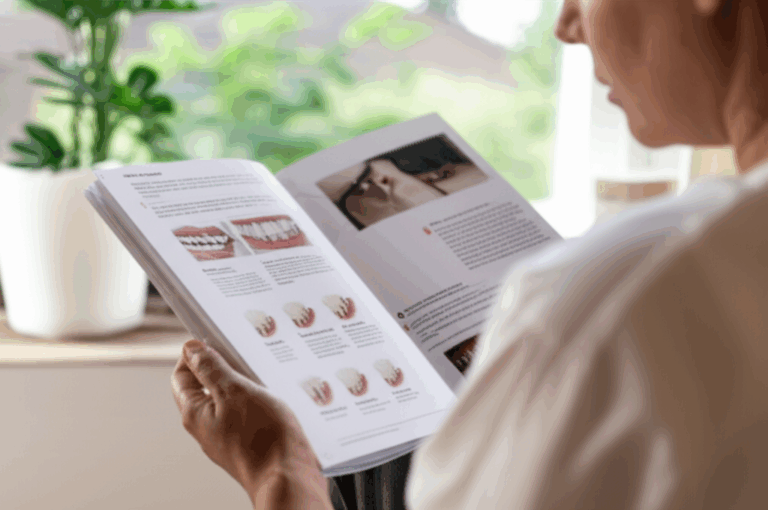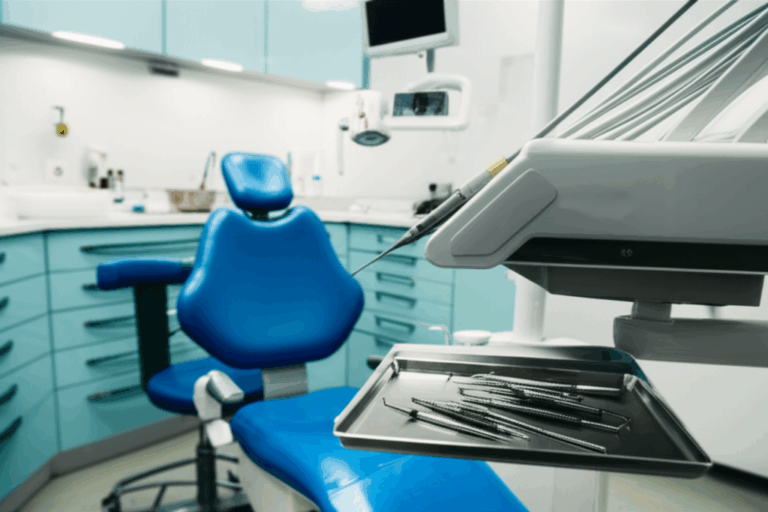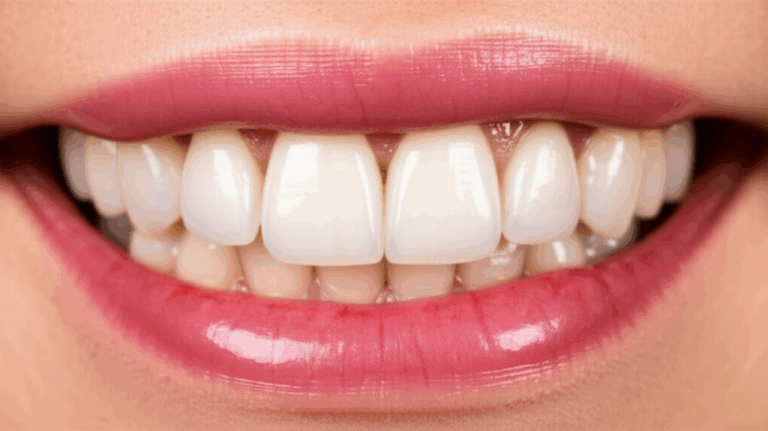
How to Become a Dental Receptionist: Your Essential Guide to a Fulfilling Career
Ever wonder what it takes to say hi with a big smile at the dentist and keep things moving all day? This guide will show you how to become a dental receptionist, what you’ll do, how much you can get paid, and how it can turn into a steady, fun job. If you like to help people and work with a team, find out why being a dental receptionist might be just right for you.
Table of Contents
- What Does a Dental Receptionist Do?
- Why Is the Dental Receptionist So Important?
- What Skills Do You Need to Be a Good Dental Receptionist?
- What Education Do You Need?
- Do You Need Special Training or Certification?
- How Can You Get Experience?
- How Do You Write a Great Resume and Cover Letter?
- What’s a Day Like for a Dental Receptionist?
- How Much Do Dental Receptionists Make?
- What Jobs Can You Get After Being a Dental Receptionist?
- Is This Career Right for You?
- FAQs
- Summary: Key Things to Remember
What Does a Dental Receptionist Do?
When you walk into the dentist’s office, the first person you see is usually the dental receptionist. This friendly person says hello, helps you fill out your forms, and makes you feel comfortable. But it’s more than just being nice. A dental receptionist runs the front desk, keeps the schedule on time, handles patient files, and answers phones all day.
Here’s a quick list of what you’ll do:
- Greet patients and check them in
- Answer the phone and book appointments
- Help new patients fill out forms
- Check patient insurance and talk about what is covered
- Keep patient files safe and private
- Take payments and handle bills
- Send reminders about upcoming visits
A dental receptionist is like the center of the office, making sure things work right and everyone feels at home.
Why Is the Dental Receptionist So Important?
Great dentist visits start with a good welcome. As a dental receptionist, you set the feeling for the whole visit. If you help patients feel safe and calm, they are more likely to trust the office and come back. The dentist and assistants count on you to keep things on time and be sure everyone gets help.
But that’s not all. Dental receptionists protect private patient info, follow privacy rules, and solve small problems. If a form is wrong or someone is upset, you are the first one to help.
Here’s why your job matters:
- You help the office stay in order and on time
- You keep track of patient files and forms for insurance
- You help people calm down if they’re scared or worried
- You notice when someone needs help—sometimes even before they say anything!
It’s a big job, but if you love to help people, you’ll feel good doing it.
What Skills Do You Need to Be a Good Dental Receptionist?
Some people think this job is easy, but it really does take skills! Good dental receptionists talk well with others, are organized, and stay cool even if it’s busy. You’ll get questions all day, sometimes from unhappy people, and you always need to do your work right.
Important soft skills:
- Communication: You’ll talk, write emails, and answer phones every day.
- Empathy: Some patients are scared or hurting. You need to make them feel better.
- Organization: You’ll handle appointments, files, and calls at once. Keep on top of it!
- Problem-solving: Things don’t always go right—think fast when problems come up.
- Confidentiality: Patients trust you to keep their info private.
Office and computer skills:
- Using office software like Dentrix or Eaglesoft
- Typing, sending emails, using Word
- Taking payments, making bills, working with insurance
- Entering info and keeping files tidy
What’s most important? A happy, positive attitude. You’re the first and last person patients see, so your smile matters.
What Education Do You Need?
Most dental receptionist jobs just need a high school diploma or a GED. You don’t need a college degree, but if you take classes in office work or customer service, it could help.
Basic needs:
- High school diploma or GED
- Good with numbers and reading
- Can speak and write well
Some places like people who have taken a dental terminology course or have worked in a medical office, but don’t worry if you haven’t. If you show you want to learn and help, you can still get the job.
Do You Need Special Training or Certification?
You can get hired with just a diploma, but you can stand out with extra classes. Some schools and online sites have short programs where you learn about billing, insurance, or how to use dental office software. A lot of these teach you about patient files and how dental treatments work.
Helpful certificates:
- Dental Office Assistant Certificate
- CPR Certificate (often needed)
- Short classes on privacy rules
- Training with office software like Open Dental
Even just a little training shows you care about your job. It’s a good way to show clinics you’re ready to work even with no job experience.
How Can You Get Experience?
Worried you’ve never worked in a dentist’s office before? Don’t worry! Here are some simple ways to get experience:
Ways to build experience:
If you can show you are good with people, computers, and organizing things, you’ll stand out. What matters most is being on time, helpful, and ready to learn.
How Do You Write a Great Resume and Cover Letter?
Lots of people get stuck when writing their resume. But you can do it! Keep it short and use easy words—try to fit it on one page.
What to put in your resume:
- Your schooling (diploma, GED, certificates)
- Computer skills (Word, email, office programs)
- Any customer service or office jobs—even if they weren’t at a dentist
- Special classes (CPR, dental words)
- Stories of how you solved problems or worked with others
Cover letter tips:
- Say why you like helping people
- Tell them what you can do, like making appointments or working with insurance
- Sound excited to join their team
Here’s a simple way to write it:
> Dear Hiring Manager,
>
> I want to apply for your dental receptionist job. I have experience helping people and using computers, and I know I can help your office go smoothly. I’m ready to learn how dentists work and will bring a friendly, positive attitude to your front desk.
Use words from their job ad like “scheduling,” “billing,” or “privacy rules” to show you’re what they want.
What’s a Day Like for a Dental Receptionist?
Let’s imagine your day. You start by unlocking the office, turning on the computer, and checking phone messages. Maybe someone calls who needs an emergency visit—can you fit them in? You welcome the first patients and check them in with the computer. Someone asks about insurance, a mom is nervous, or a kid wants to know where the bathroom is.
All day, you watch the clock and the front of the office. You call people to remind them about their appointments, check insurance, send bills, and put files away. You also keep the waiting room tidy, and make sure everything is safe.
Here’s a sample day:
| Time | Task |
|---|---|
| 8:00 AM | Open office, check messages |
| 8:30 AM | Greet patients, check insurance |
| 10:00 AM | Make reminder calls |
| 11:30 AM | File patient records |
| 1:00 PM | Take payments, answer emails |
| 3:00 PM | Update schedule, help with referrals |
| 5:00 PM | Close office, lock up records |
The best days go by fast! Some days are tougher, but you’ll learn a lot.
How Much Do Dental Receptionists Make?
Here’s the answer on pay. You want to know if it’s enough, right?
Average beginner pay: $30,000 – $35,000 a year
After some years: Up to $45,000 or more
Where you live matters: Big cities pay more. Small towns may pay less.
Most dental receptionists work around 40 hours each week, usually during the day. Some dentists open late or on Saturdays. The job is steady and can come with raises if you learn new things and take on more work.
What Jobs Can You Get After Being a Dental Receptionist?
Being a receptionist is just the start! Many people later become office managers, insurance specialists, or even train as dental assistants.
Some next steps:
- Dental office manager
- Billing or insurance expert
- Treatment planner
- Dental assistant (with more training)
If you’re curious about other jobs in the field, you can check out china dental lab or even work in making crowns and bridges. There are lots of ways to use your skills and earn more.
Is This Career Right for You?
Let’s look at good things—and some tough things.
Good:
- Reliable hours and steady pay
- You help people every day
- Work with a team in a good place
- Can move up to better jobs over time
Tough:
- Fast, sometimes stressful days
- Need to handle upset people once in a while
- Lots of details—mistakes can be a problem
You’ll do well if you love to help, stay organized, and like learning new things. If you’d rather work away from the front desk, you might like working in a dental ceramics lab or making dentist parts. There’s a place for everyone in the dental world!
FAQs
Q: Can I become a dental receptionist with no experience?
A: Yes! Most dentist offices only want a diploma or GED. If you’re ready to learn and have basic skills, they’ll help you.
Q: What software do dental offices use?
A: They often use Dentrix, Eaglesoft, Open Dental, or SoftDent.
Q: Do I need a license or certificate?
A: No, but a certificate helps. You might need CPR and some privacy training.
Q: What’s the hardest part?
A: Handling angry patients or busy days can be tough, but with time, it gets easier.
Q: Can I get promoted?
A: Yes! Many go on to be office managers, or take jobs in billing or planning.
Summary: Key Things to Remember
- Dental receptionists keep the office working well.
- You need a diploma or GED to start.
- Good talking, organizing, and people skills are important.
- Short training courses and certificates help your chances.
- You can move up to better jobs.
- The pay is reliable, with good hours and benefits.
- You help people every single day.
Ready to start working as a dental receptionist? Look at local jobs, learn about china dental lab opportunities for more info, or see how a dental ceramics lab fits in the team. Your new job could start today!








